Diagnostic nephrobiopsy
Percutaneous puncture biopsy of the kidney is an important examination for diagnosis of kidney disease. It is performed to evaluate kidney abnormalities, specify the diagnosis, determine the stage of the disease, choose the tactics of therapy and predict the course of renal disease.
Kidney biopsy procedure:
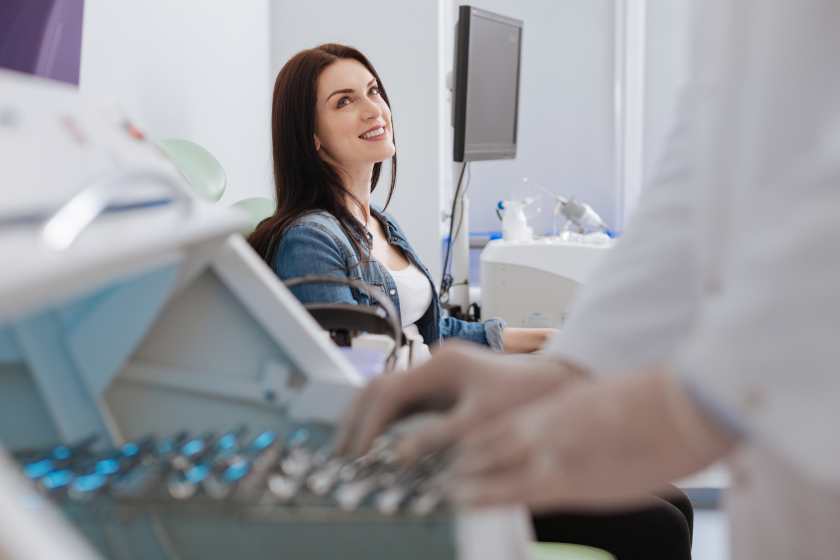
The kidney biopsy is performed at the outpatient department or in a day hospital on an empty stomach. The patient needs to undress to underwear, remove jewelry and lie down on an examination table with stomach on a roller. The kidney biopsy is performed in a small operating room with constant ultrasound control and under local infiltration anesthesia from the back with a disposable puncture needle.
The kidney biopsy is performed on condition of normal blood coagulation and no persistent high hypertension, which minimizes the risk of bleeding. The procedure lasts 20-30 minutes. In 1-2 hours after the procedure and on the next day a full blood test and kidney ultrasound are taken; the patient is recommended bed rest for 10-12 hours lying on his back.
The extracted sample is sent for further electro-microscopic examination and immunohistochemistry assay by a pathologist. The nephrologist assesses the histological findings, makes diagnosis and determines severity of kidney damage, risks of renal failure progression and optimal basic therapy.
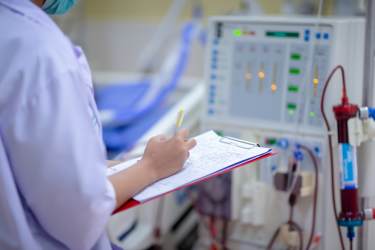
_%D0%BE%D0%BF%D1%82.jpg%3Fv%3Dt)

Preparation for the procedure:
As a preparation, a patient should consult urologist who will perform a kidney biopsy. A patient needs to take the referral from a nephrologist, results of kidney ultrasound, general blood count, blood creatinine, coagulation profile, Lee White blood clotting time, blood type, rhesus factor and a blood pressure diary.
Modern nephrology rooms of the MC Dobrobut network are equipped with pulse oxymeters. These are portable devices for measuring blood oxygen saturation, which is important for diagnosis of some kidney diseases.
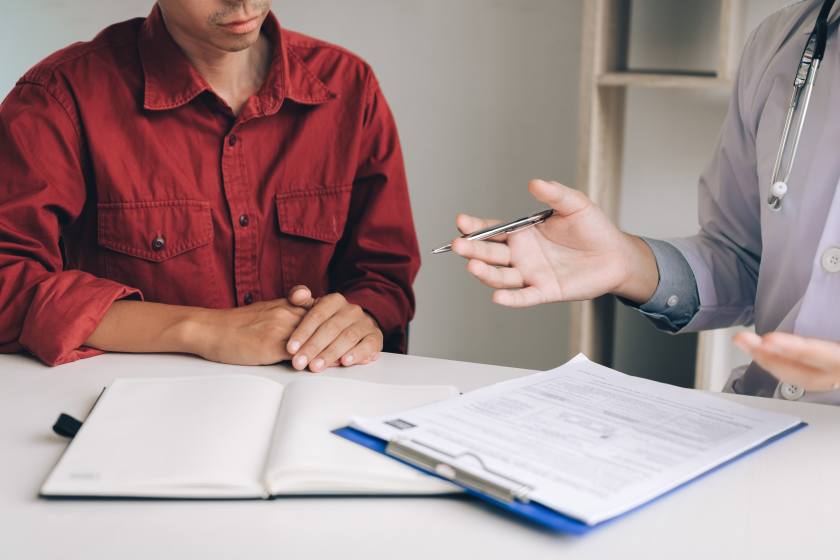
A wide range of diagnostic tools and techniques allows nephrologists of the MC Dobrobut network to make accurate diagnosis and prescribe appropriate treatment. All examinations and tests are performed in a comfortable patient-centered environment.
Nephrologist explains to a patient the examination details and the need to apply a particular method of treatment in each individual case.
Our advantages
Our nephrologists
Dobrobut Family Health Care Center on Goloseevo
ISO certificates
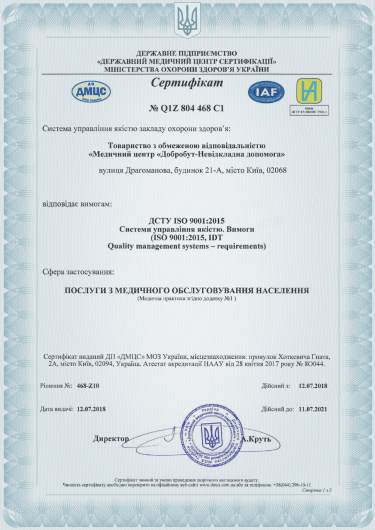
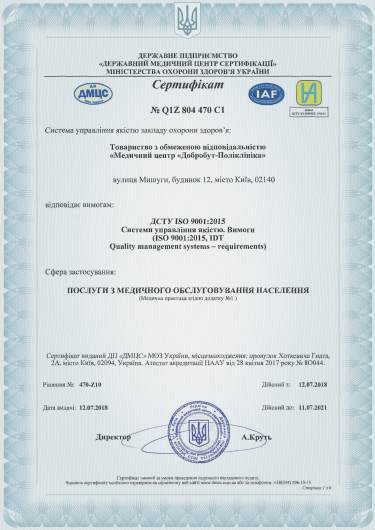
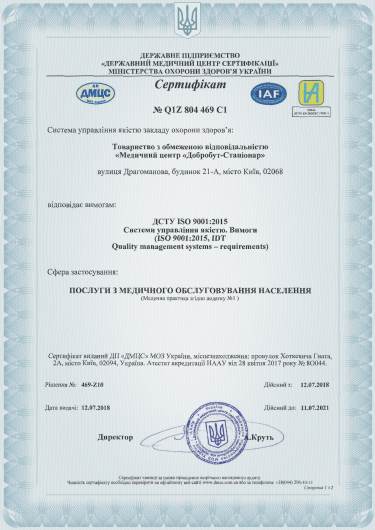
Accreditation certificates
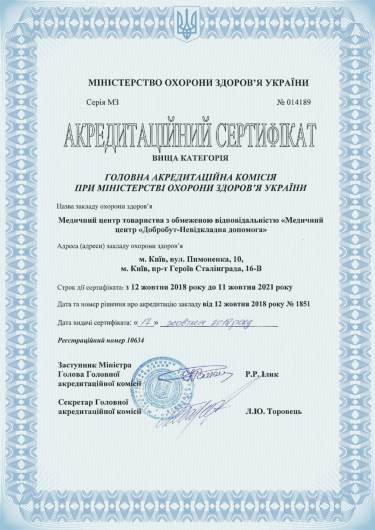
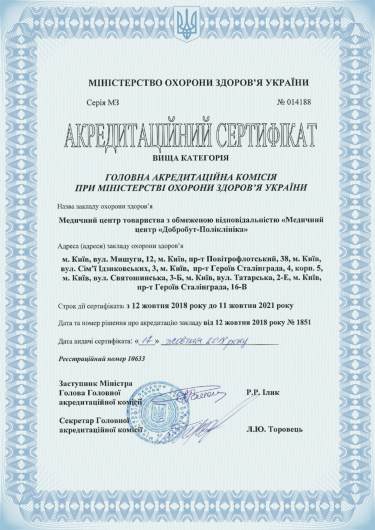
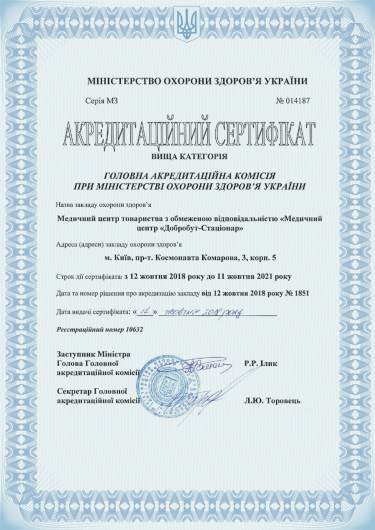
of Dobrobut clinic chain
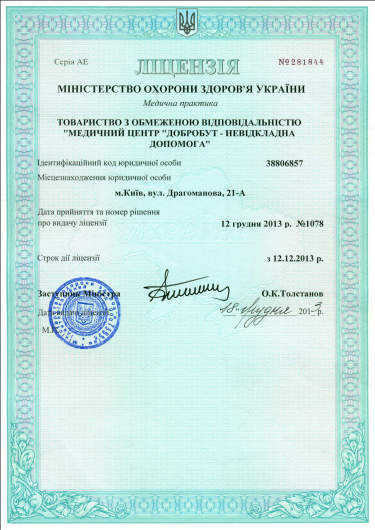
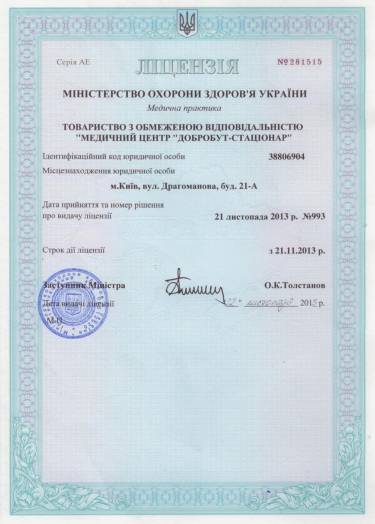
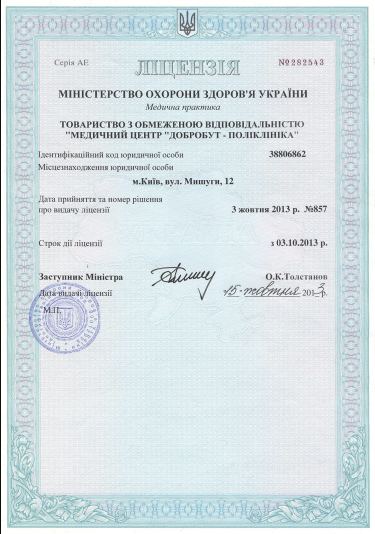
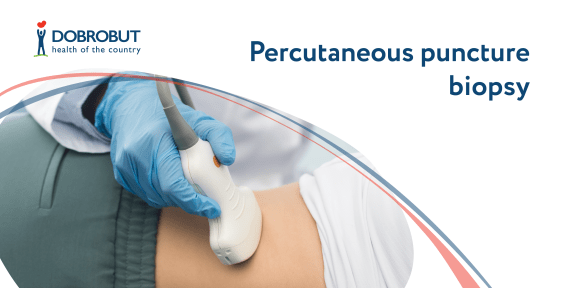
%402x.png)
%402x.png)
